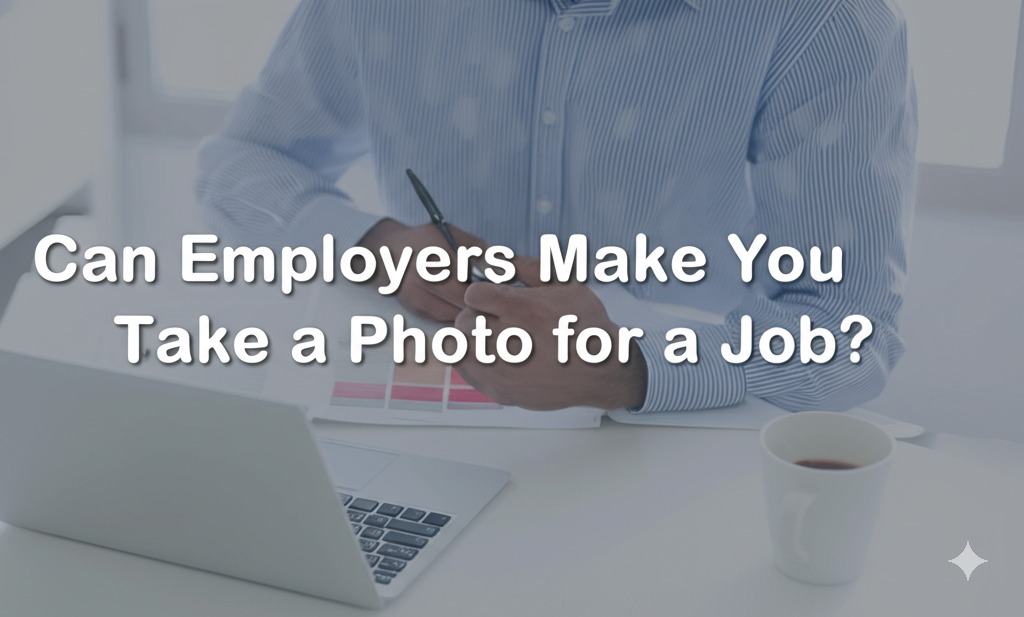
In today’s digital job market, personal branding and employer expectations go hand in hand. But where do we draw the line between professionalism and privacy? One question that often pops up is: Can employers make you take a photo for a job?
From profile pictures on company websites to ID badges and promotional materials, there are various reasons employers might request a photo. But is it a requirement—or a request? And what are your rights as a candidate or employee?
Let’s dive into the legal, ethical, and practical aspects of this increasingly relevant topic.
Understanding the Context: Why Employers Might Ask for a Photo
Before assuming ill intent, it helps to understand why an employer might want your photo.
Common Reasons Employers Request Photos
- For identification purposes (e.g., ID badges, security passes)
- Employee directories or team bios on the company website
- Marketing or promotional content
- Client-facing roles where appearance may play a role (e.g., sales, hospitality)
In most cases, employers aren’t asking for a photo arbitrarily—they often have practical or branding-related reasons. However, that doesn’t mean you’re obligated to provide one in every situation.
Is It Legal? Your Rights as a Job Applicant or Employee
Whether or not an employer can legally require a photo depends largely on local labor laws, anti-discrimination policies, and the timing of the request.
During the Hiring Process: A Legal Gray Area
In the U.S. and many other countries, requesting a photo before a job offer is made can be risky for employers due to equal opportunity laws.
Why? Because a photo can reveal protected characteristics like:
- Race or ethnicity
- Age
- Gender identity
- Disability
This opens the door to potential discrimination claims, even if unintentional. That’s why most HR experts recommend not requesting photos during the application phase.
⚠️ Important: If an employer asks for a headshot with your resume, that’s a red flag—especially if it’s not a standard industry practice (like in acting or modeling).
After You’re Hired: Different Rules Apply
Once you’ve accepted a job, employers have more flexibility, especially when photos are required for:
- Security badges
- Internal directories
- Company branding (with consent)
However, even in these cases, you still have privacy rights, and employers must be clear about how your image will be used.
Consent and Privacy: What Employers Can (and Can’t) Do
Employers Can:
- Ask for your photo for legitimate business purposes
- Include your photo in internal materials (with notice)
- Use your photo in marketing if you’ve signed a release or consent form
Employers Cannot:
- Force you to provide a photo during the application process
- Use your photo in external communications without your consent
- Retaliate against you for declining a non-essential photo request
It all boils down to consent and context.
When Is It Okay to Say No?
You absolutely have the right to ask questions or decline a photo request—especially if:
- The reason for the photo isn’t clearly explained
- You’re uncomfortable with how your image may be used
- The request is made before you’re hired (and outside industry norms)
How to Politely Push Back
If you’re unsure, try a response like:
“I’d be happy to provide a photo once I’ve learned more about how it will be used. Can you share more details on the purpose and whether it’s optional?”
This keeps the tone professional while protecting your rights.
Industry Exceptions: When Photos Are Standard
There are some professions where photos are typically expected:
- Actors, models, and performers (headshots are part of the portfolio)
- Real estate agents or public-facing sales roles
- LinkedIn or company profile-based industries
In these cases, not providing a photo may hinder your chances, but it’s still important to understand how your image will be used.
Tips for Employers: How to Stay Ethical and Legal
If you’re an employer or HR professional, here’s how to handle photo requests the right way:
- Wait until after an offer is made to request a photo
- Be transparent about how and where the photo will be used
- Obtain written consent for marketing or public-facing use
- Offer alternatives if an employee is uncomfortable (e.g., initials or icons on internal systems)
Remember: Respect builds trust—and in today’s culture, privacy matters.
Final Thoughts: Finding the Balance Between Professionalism and Privacy
So, can employers make you take a photo for a job? The short answer: Not during the application phase—and not without good reason. Once you’re on the team, photo requests may be reasonable, but your consent still matters.
Key Takeaways:
- Photos shouldn’t be a pre-requisite for job applications (unless industry-specific)
- Transparency and consent are key
- You have the right to ask questions or decline non-essential requests
📸 Bottom line: If you’re unsure about a photo request, trust your instincts—and don’t be afraid to advocate for your privacy.

Andre Cuevas provides career insights, job search strategies, and professional advice to help individuals navigate the job market and achieve their career goals.





